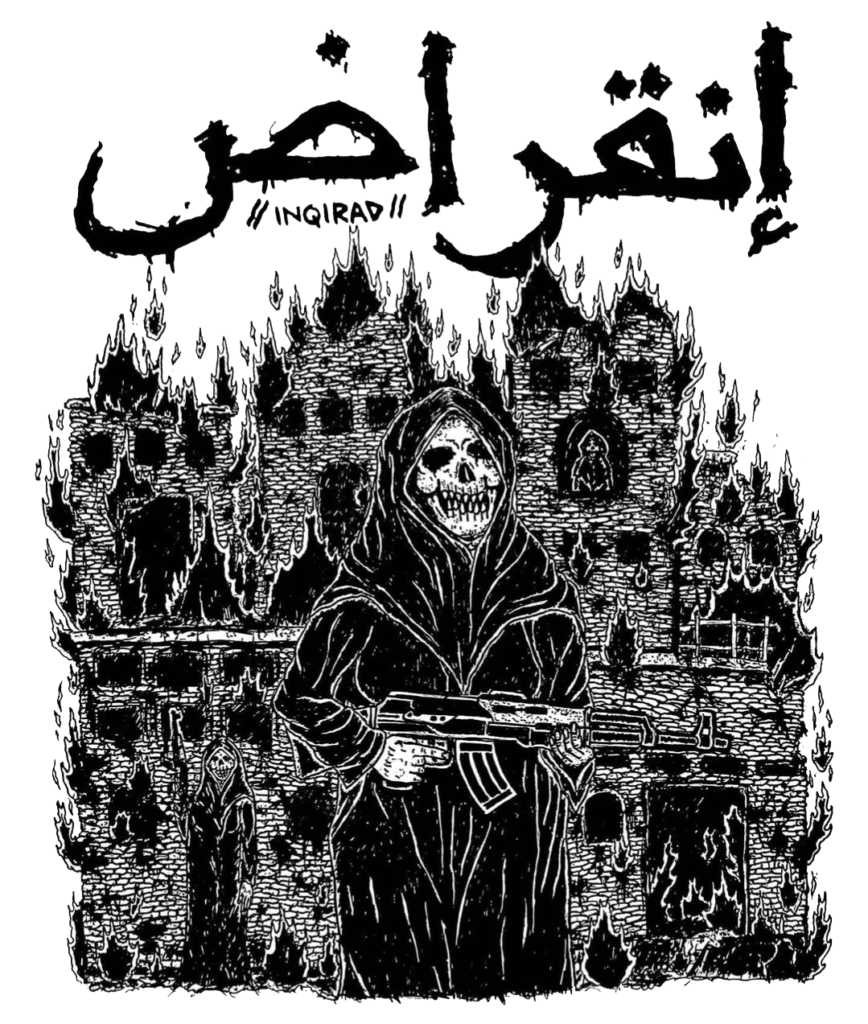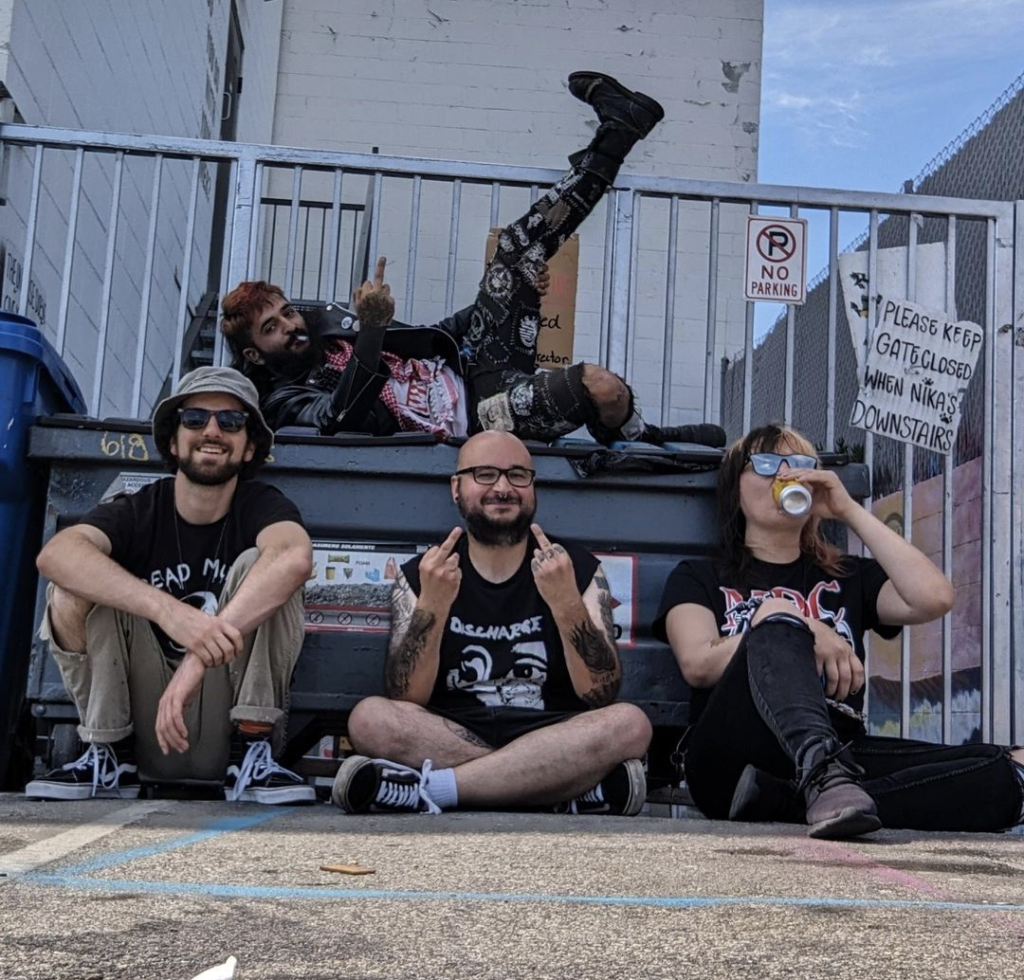The name Inqirad means extinction in Arabic.
The meaning behind it is the extinction of my people and how Arabs are treated globally. People look at us like we’re sub-human, look at what’s happening in Palestine. You can see that there’s not a lot of media coverage and what we do see isn’t necessarily from the press, it’s from individuals in the Gaza strip with phones & internet access. My people suffer every day. And it’s been this way for a long time.
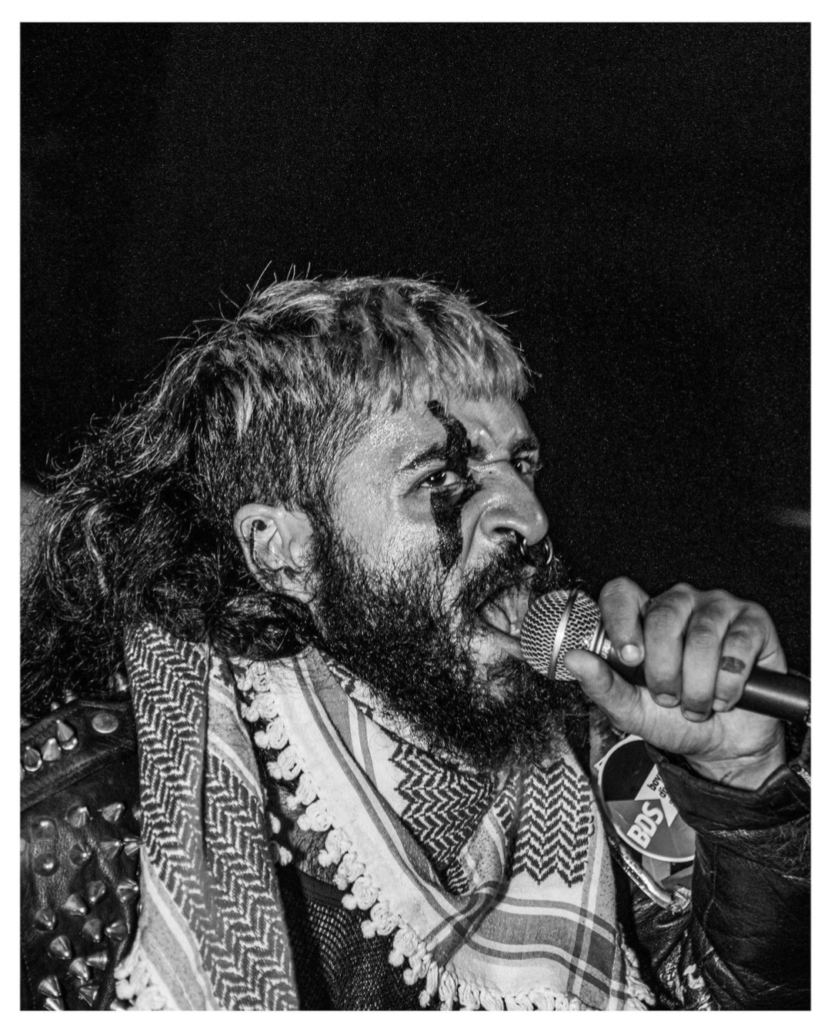
In 2021, during the first lineup of this band, there was a point where I was talking openly about what was going on in Palestine on stage – everyone was looking at me like, What are you talking about? No one really believed that this is what happens in the Middle East, that this is what happens to my people. So I felt like I had to represent. I took a stance. And I started singing primarily in Arabic.
I’m Jordanian and Palestinian, there’s a lot of refugees in Jordan from Palestine. My dad was displaced in the war of 1967, when he was four years old, with my grandmother. I was never able to visit Palestine as a kid or growing up.
My siblings and I were born in Boston, Massachusetts. We’re first-generation Arab Americans. But my Dad wanted his children to know Arabic; the religion, the culture. So after he was done with school, he brought us to Jordan, where most of my family lived. Around six, I moved to Saudi Arabia and they launched an attack on the compounds we were living in, killing all non-muslims. I was almost six or seven. I remember they came into my friend Hashim’s house with AK-47s and butcher knives. They saw the Muslim calligraphy on his wall so they let him go. He was just playing some Nintendo 64 and suddenly his house was being raided, door left broken. He was in the papers in Saudi Arabia. They ended up killing at least 50, 60 people. Two or three of them were Jordanian, some of them were Arab as well. It wasn’t just non-Arabs.
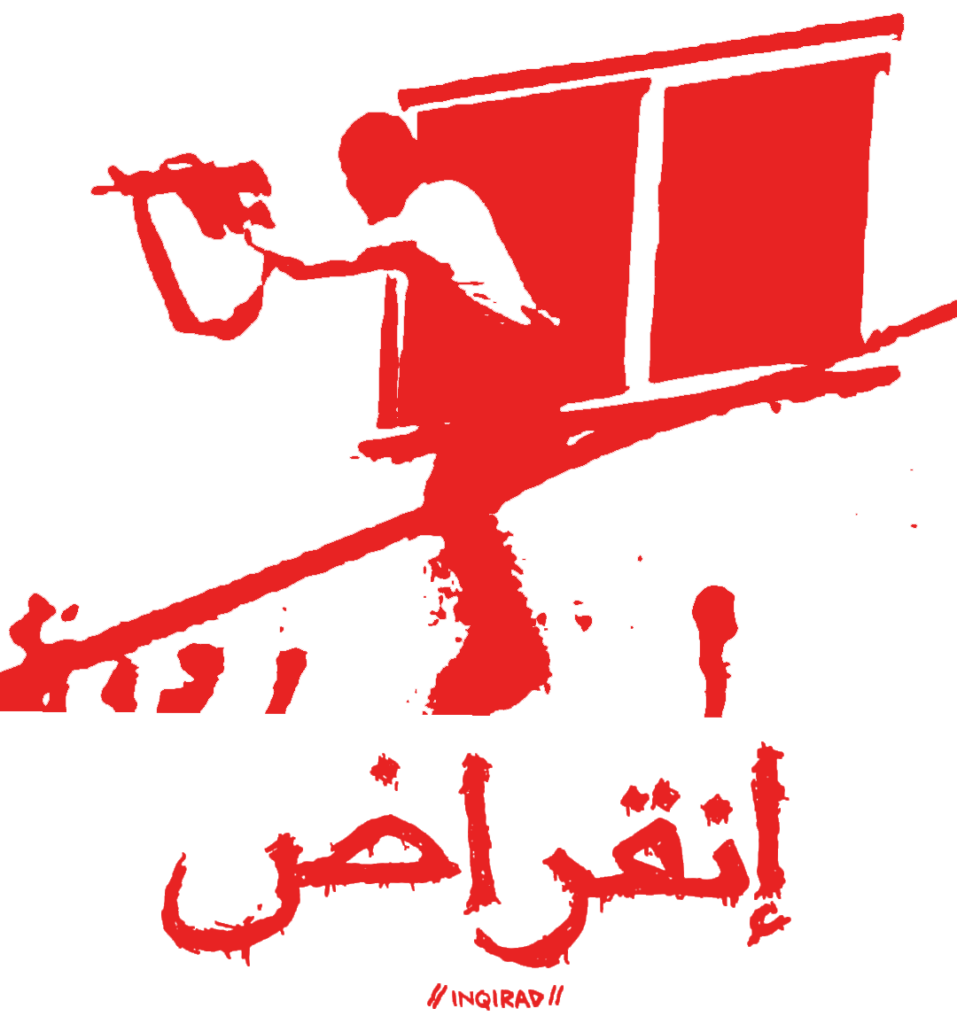
We went back to Jordan and stayed there for about a decade. Then we moved to Canada for a bit. I stayed in Toronto for about a year. We went back to Jordan briefly and then we ended up in Southern California when I was in my later teens.
I was around 15 in Jordan when I started listening to punk. I started making all this DIY clothing and trying to make a scene out there, I was the only punk in my city. When I would walk around the street at night cops would stop me, picking on the kid dressed differently with a little mohawk. I had cops hit me, beat me with sticks, steal my cigarettes and whatever cash I had on me. They didn’t really let me have anything nice. In the States it felt so weird to find people who accepted me.
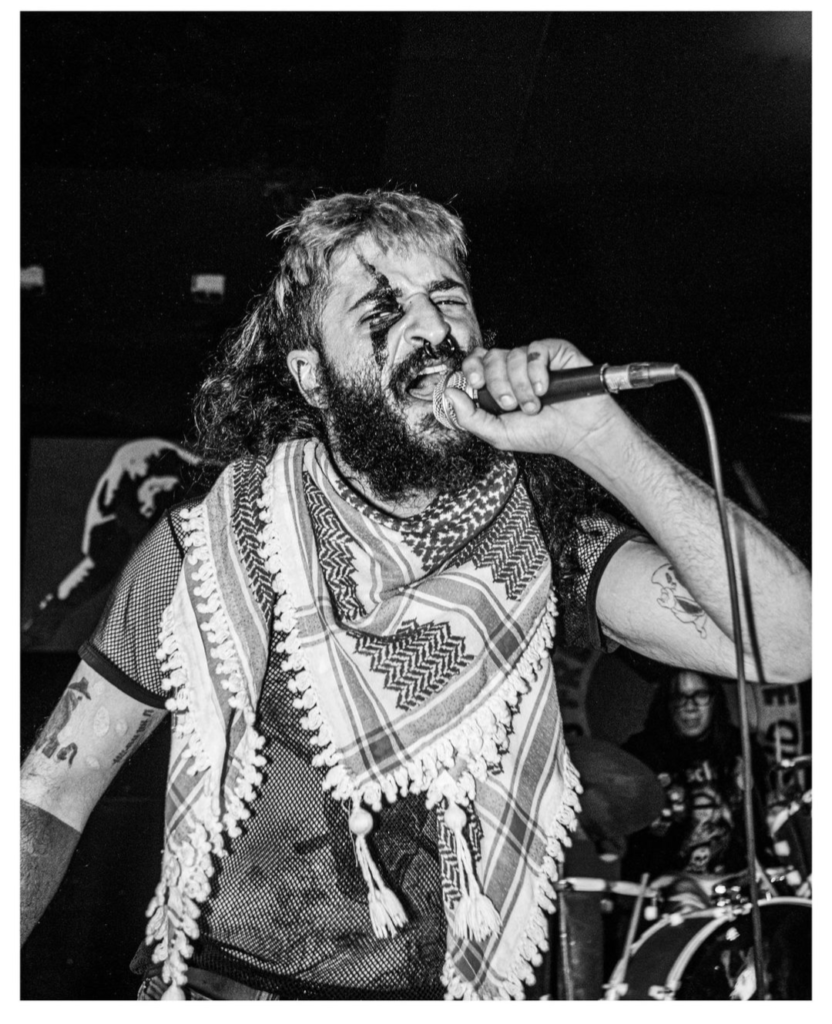
When people ask for my name, their first reaction is to ask, “What are you?” Not where are you from, what are you? The first time someone asked me that I froze. I didn’t know what they meant, but my family told me to expect it, you know? I’m a human being, I just got a little melanin on me, I don’t know, I’m an Arab. “What’s an Arab?” I started trying out a nickname and I’d still get asked that. So I said I wouldn’t water myself down for these Americans, I’ll run with my full name. It was my grandfather’s name and I hold it with pride. So now I say Abdullah firmly, and if they don’t know how to pronounce it, I teach them.
When I first started the band, I posted an ad on Craigslist. It said: “Arabic punk band looking for members. I’m the vocalist but I don’t have any music yet. I don’t have anything but we can create it together.” I met a lot of people. Some of them told me, “What the f*ck are you trying to do? An Arabic punk band?”
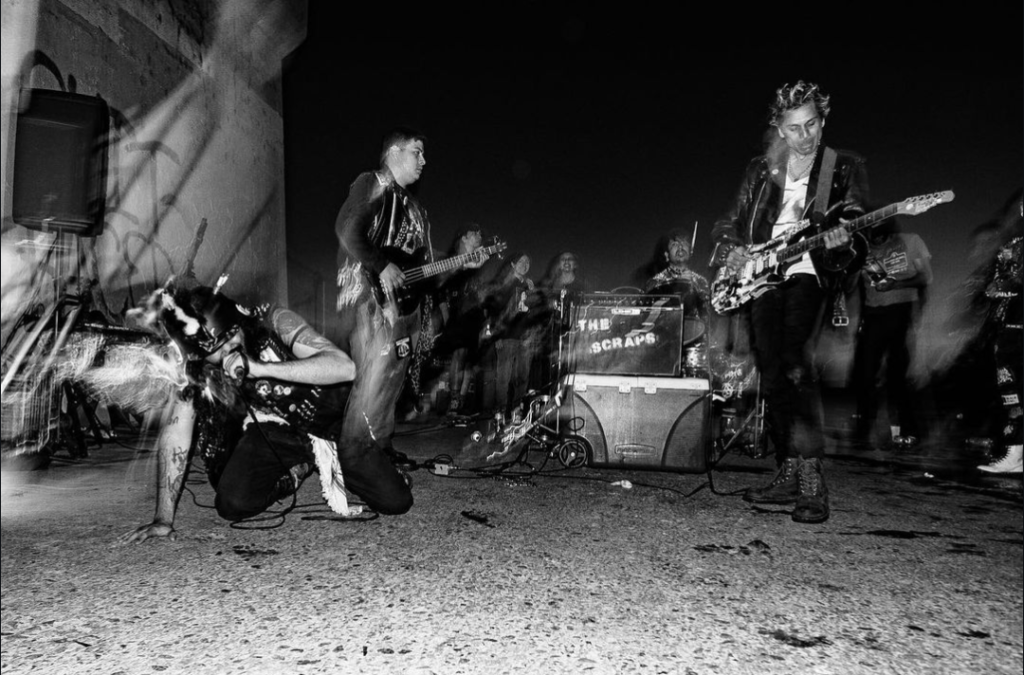
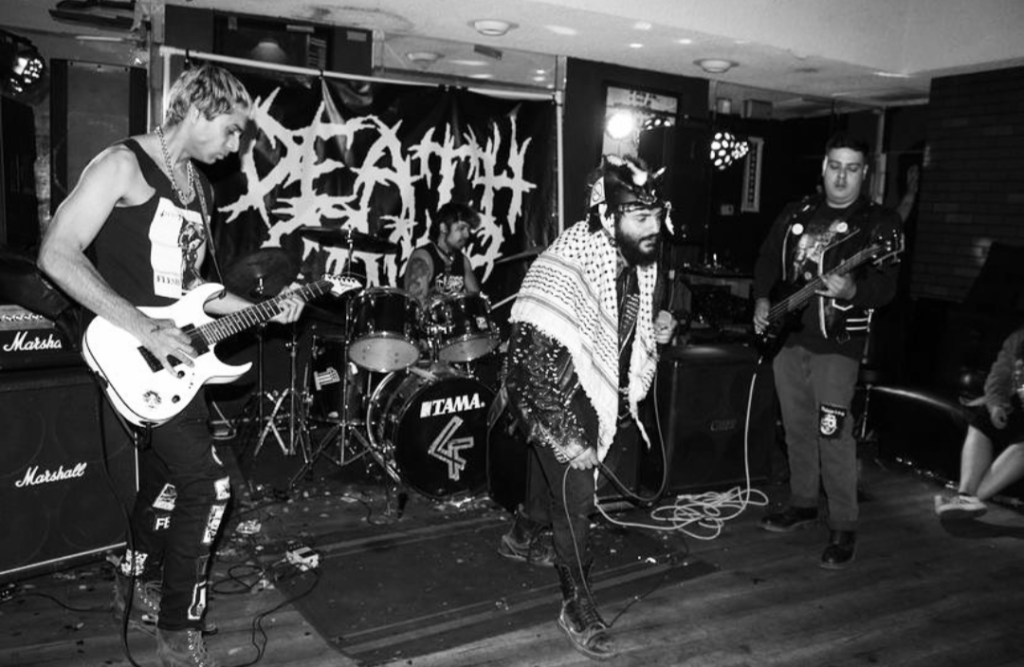
Eventually a lineup formed and we made a demo. We played a few shows but we all had our musical differences, so we ended up parting ways with ourselves. The demo was out so I put another Craigslist saying “Arabic punk band, we have a demo. Who wants to be in it?” And that’s how I found Devin (bass). He waited for two years until I could find the other members.
DEVIN: We never really jammed until the Fall of 2023. We had one jam session with Ethan (guitarist) and a drummer who couldn’t continue with the band. We fell out of practicing and randomly, when Abdullah and others were putting together the first Punks for Palestine, he hit me up to tell me we’re gonna play a show. The date was only a week or so out and we didn’t even have a drummer. Kristine from S.O.H. hit him up saying their bassist Andy could fill in. We randomly put it together in like a week’s time. Sophia (drummer) started jamming with us after coming up to us after our set and she was a perfect fit for Inqirad.
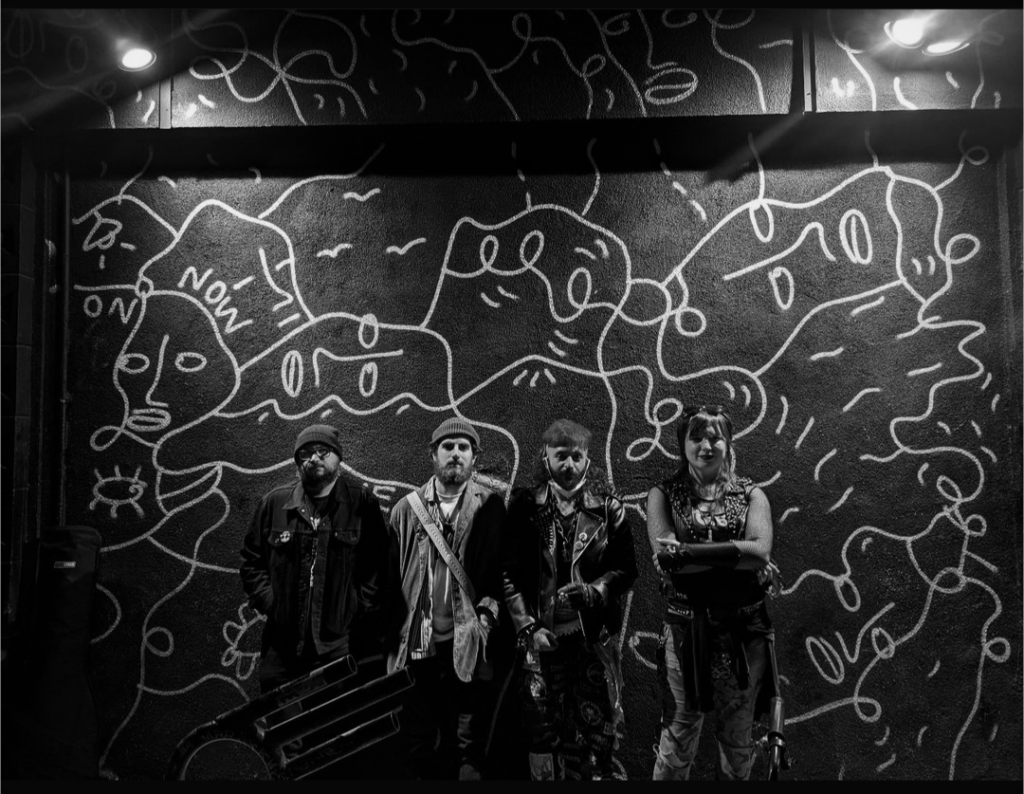
It feels good to finally have a lineup. The way I look at this band is the same as a displaced Arab, in the scene or in foreign countries. It felt like I was searching for my people, in a place that doesn’t necessarily accept me for who I am & what I believe in. Everyone in the band now is so motivated to take it further, it’s incredible. This is a very unique feeling for me. Inqirad is my first band. That’s why I held on to it for so long, I didn’t want to give up on the idea. It meant a lot to me, and when I couldn’t find members people told me to try a new band. I told them no because I didn’t want to let go of it, it’s like my child, I have to hold on to it. It’s the same way displaced Palestinians hold on to the keys to their doors, some for decades already, to pass them to the Next Generation who will one day return.
In Arabic, we call the word resistance intifada. Punk is the essence of the word intifada. This is what the Arabs need – we need punk.
-Abdullah El-khatib.
